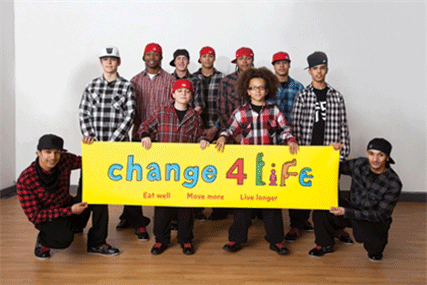The COI's decision to hand its £250m media buying account to WPP's M4C consortium last week marked a watershed in the Government's advertising strategy.
The outcome of the UK's biggest-ever media pitch, which consolidated the Government's media buying from six individual agencies into one agency group, could have significant implications for the shape of media deals to come.
It is likely to lead to dozens of staff from the losing agencies being re-employed by WPP and potentially spells deep trouble for i-Level, which has lost the COI's digital buying business, thought to represent about one third of the agency's turnover.
Last week, the COI announced that WPP will handle all the Government's media planning from April, after the group put together the M4C consortium combining expertise from GroupM agencies MediaCom, Mindshare and Mediaedge:cia.
The group has yet to finalise details of how it will operate the huge account, although MEC deputy managing director Alex Altman is expected to lead the business.
WPP's weighty M4C pitch team beat Smile: an alliance between Starcom, which previously handled the COI's radio business, and digital specialist i-Level, which previously managed the Government's digital media buying.
The third competitor in the frame, Unify, was an amalgam of Aegis-owned agencies, including digital agency Diffiniti. Aegis agency Carat previously bought the COI's press ads, while sister agency Posterscope bought the COI's outdoor advertising.
However, M4C's integrated offer could raise costs for the COI just as its spending comes under the spotlight from Government. Douglas McArthur, managing consultant at Planning for Results, who drew up the document suggesting the COI should hire a single media agency, says: "It is really hard to manage integration among six suppliers.
"Putting the business into one agency means that agency must have people to manage the integration. The new service will probably cost more money to run because it will have more people in it." However, he adds: "In these straitened times, I suspect the agencies have pitched at lower prices." The COI declined to comment.
Some industry insiders believe M4C may be able to drive down prices for COI campaigns through cross-media deals, since many media owners operate across both traditional and new media. Online currently accounts for £40m of the COI's £250m annual media spend, but its share of the pot is likely to grow rapidly.
Given the importance of online media, some observers thought M4C was unlikely to win the COI pitch because it lacked a specialist digital agency. But the fact the decision was delayed for so long after pitching was completed before Christmas suggests the selection panel struggled to decide whether there was a superior offer to M4C's bid.
One agency source comments: "When all else is equal, clients often just go with the biggest agency." Another adds: "The UK's biggest media account has been won by the UK's biggest media agency. There is a logic to that."
Uncertain future for i-Level
Meanwhile, the move has cast a cloud over the future of i-Level, once the UK's most successful independent digital media agency, which has handled the COI's online display, search, sponsorship, partnerships and analytics business since May 2003.
Stephen Rust, chief executive of i-Level Group, says the specialist agency will continue to handle natural search and social media assignments for the COI, although he adds the loss of the online media buying will be "transformational" for the business.
The agency employs 40 staff on the COI business out of a total of 150. Under Transfer of Undertakings for the Protection of Employment (TUPE) regulations, many of those staff are likely to be re-employed by the winning agency, as are those working on the COI accounts at Carat, Posterscope and Starcom.
The COI business is understood to account for one third of i-Level's turnover and half its profits. But Rust says the agency, which has refused all acquisition offers over the last few years as it has held out for higher offers, is pitching for new business worth an equal amount to the COI account it has lost. He says: "We have to focus on where we are going as a business. We are looking at various options."
One agency source suggest the COI's move could have major implications for specialist digital agencies in general, as it suggests clients no longer accept the argument that established media operations lack online expertise.
The source says: "Perhaps the weakness of the i-Level/Starcom alliance from the COI's point of view is that they are separate agencies rather than part of the same group." Just last month, financial services giant Aviva handed its integrated account to ZenithOptimedia, dispensing with the services of a specialist online agency.
As both the Conservative and the Labour parties threaten to cut Government advertising and marketing spend should they win the May election, the COI cannot afford to court controversy by channelling more money into an integrated media buying operation.
The challenge for COI chief executive Mark Lund and his team will be to prove that integrated campaigns are more effective in terms of changing the public's behaviour, thus delivering better return on investment in the long term.


